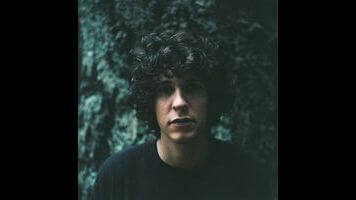Amid heartbreak, Tobias Jesso Jr. breaks down the confines of pop

A peculiar thing happens three-quarters of the way through “Hollywood,” the lead single from Canadian singer-songwriter Tobias Jesso Jr.’s debut album Goon. The song starts its life as a disheartened piano ballad, with lyrics about the throes of an existential crisis, the kind that curses confessional singer-songwriters. Jesso’s chewing on a failed relationship and career, feeling muddled, musing on the inanity of life. Hearing about someone else’s heartbreak is not a massively edifying experience—perversely eavesdropping on someone’s agony seldom is—but “Hollywood” works in the way that many folk ballads succeed. The song yanks you in, and anyone stuck in a similar gloomy life-muck will feel supported seeing themselves mirrored in the track. But then, a swarm of horns and piano build from a languid despondency into something splendid and strange: The simple instrumental break lasts two minutes and leaves enough space for the recurring themes of nostalgia to resonate, climbing an emotional peak. Perhaps the album’s most impressive achievement is the way it places Jesso’s piano at the forefront, where it ought to be. It’s a good thing when a debut artist has the balls to imbue sentiments with so much weight that they become a reflective affair.
Goon is built around recurring musical motifs—piano, strings, guitars—that float through tracks, but the songs don’t waft around a room like the musical equivalent of a scented candle. For all its emotional oscillation—from lust, to feeling used, remorse, then impatience—Goon never feels disjointed, partly because the songs are sewn together by the album’s ongoing lyrical obsessions. (That’s probably understandable given that it was written in the wake of a hurtful breakup, and the news that Jesso’s mother was diagnosed with cancer.) Rather than letting the pain win, he nudges the side of his subject matter and knocks it into place.
While the narrative is compelling, this is a sound-first record, with each lyric fostering the fundamental ideals Jesso has for his music. It’s not a genre entirely, but more of a flair, a feeling, a veneer—a musician fighting through his own skin to not only teach us about his artistry but about the kind of music pianos can make. Opener “Can’t Stop Thinking About You” is a single tear streaming down a cheek. The terrific tangling of finger-picked acoustic guitar during “The Wait” is reminiscent of a lonely trip down a deserted highway. While the track’s gloom is potent and persistent, when you’re mired in it, it never seems suffocating.
Goon moves at a stately pace. Songs unfurl for two, three, or even six minutes without peaking dynamically. On “How Could You Babe,” for instance, the music slows down, as if to simmer in its pain, then shifts to agile acoustic drumming that hangs sparingly while Jesso reflects. In his world, there is time to take everything in.
Comparisons are also reductive, since what spools out on this record reflects the weight of Jesso’s musical knowledge. “Without You” is an audible trip back to early ’70s Elton John. “For You” summons Al Stewart’s production on “Year Of The Cat,” while the chaotic bombast of “Crocodile Tears” feels inspired by Harry Nilsson’s “You’re Breaking My Heart.” This isn’t revivalist; Jesso’s strengths have harnessed the energies of folk-rock.
Unfortunately, Goon is not cohesively charming. A few goofy moments arrive through feigned crying during “Crocodile Tears,” an affectation that culls the best of the song’s appeal. Maybe, in retrospect, Jesso’s rational sense of balance holds him back: A few more extremes, and his next album might really sing.
Jesso’s music has the potential to do something rather radical without feeling craven or compromised. He might be able to break down the confines of pop by penetrating the mainstream, uncovering beliefs that belie human complexities. Goon is a series of personal sketches of a distressing world, and if that fusion of utter delusion and despair isn’t a picture-perfect distillation of what it means to function in this age, it’s hard to know what is.